
It just keeps on raining nonstop, every day. There was honestly not a single day without rain.
But it continued to be warm and I somehow had to keep going forward, so I pedaled on.
I climb at least 1000 meters of altitude per day. But every meter is worthwhile; it is beautiful out here.
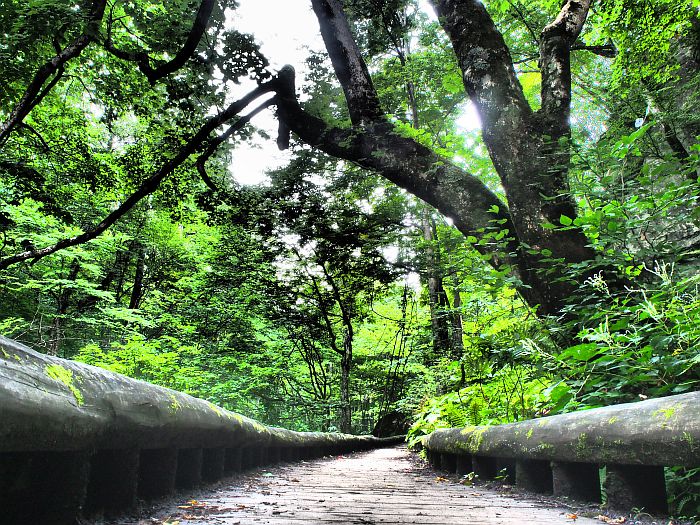
The northern part of Honshu is also an area far away from civilization. Here too, there are
many crater lakes and a massive amount of forest and a lot of old people.
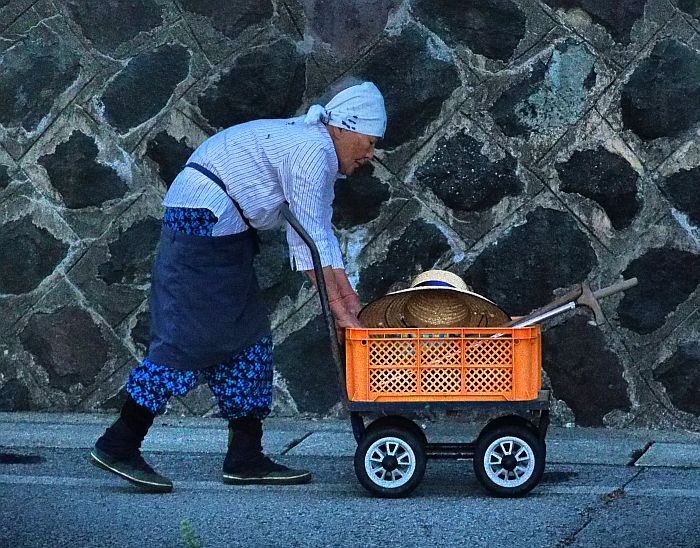
I pedaled through the Oirase Gorge and was enchanted by its beauty. There was one waterfall
after another, sharp curves and an entire forest covered in moss. Dreamlike. The Gorge ended
at another crater lake – Towada Lake.
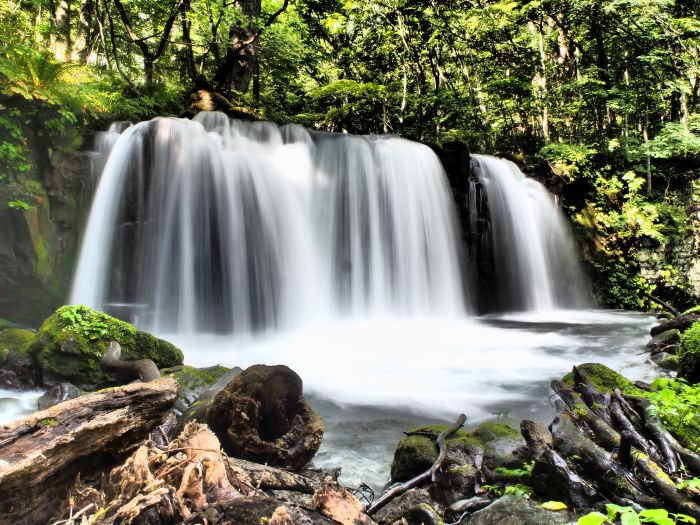
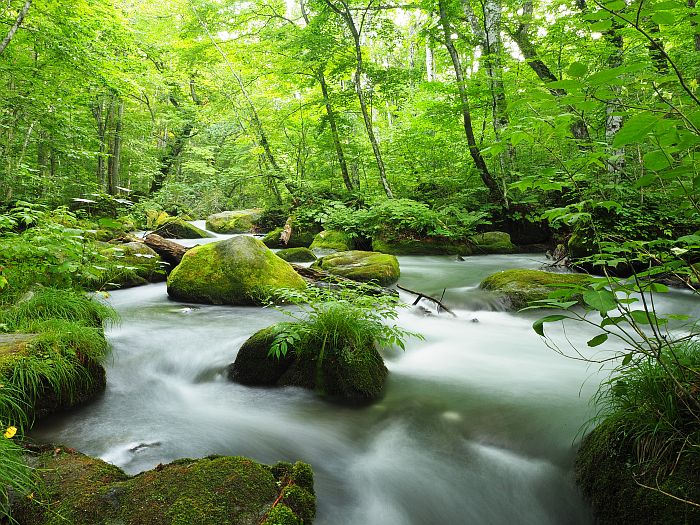
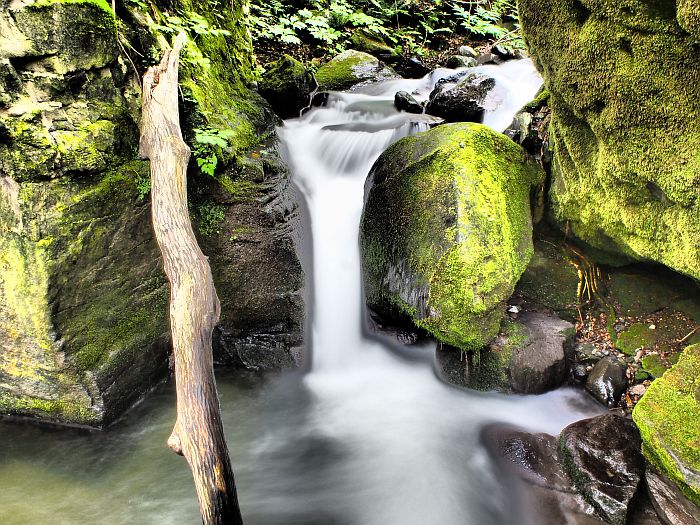
But for two days it rained here without stopping for a single second, so I entrenched myself
under the roof of a visitor center. I used the onsen in the village and rested.
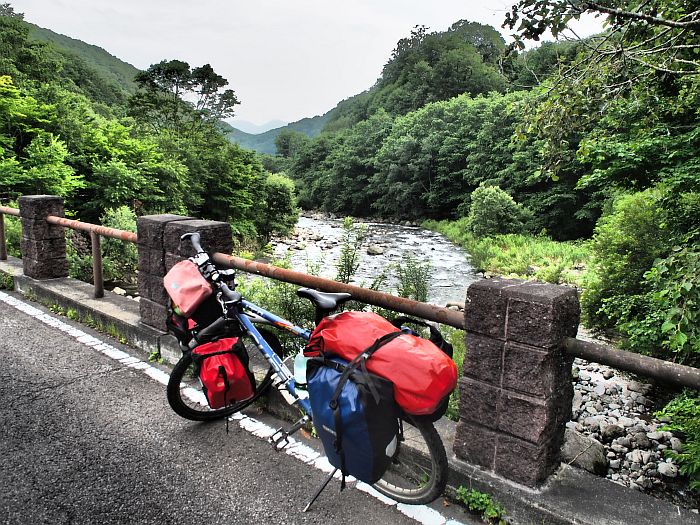
It is high season for typhoons, and because of that I don’t expect it to get any better with the rain and wind. When it is raining cats and dogs continuously, it’s really no fun anymore.
Above all I have to continually look for some shelter.
Frequently, it is some kind of emergency shelter – true to the motto “the main thing is to have a roof over your head”.
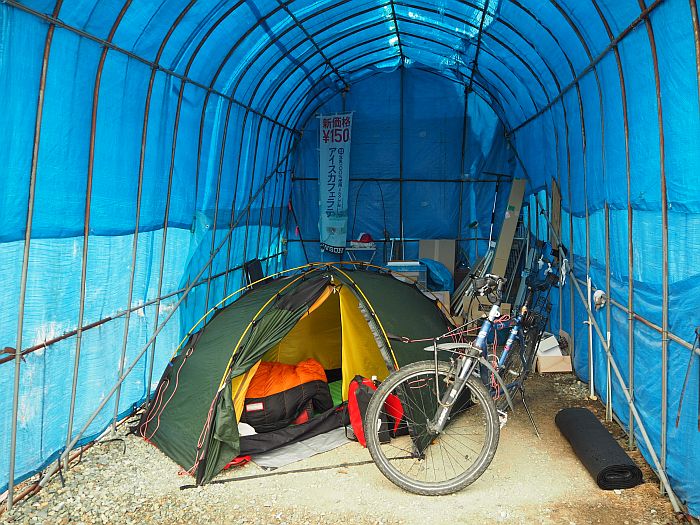

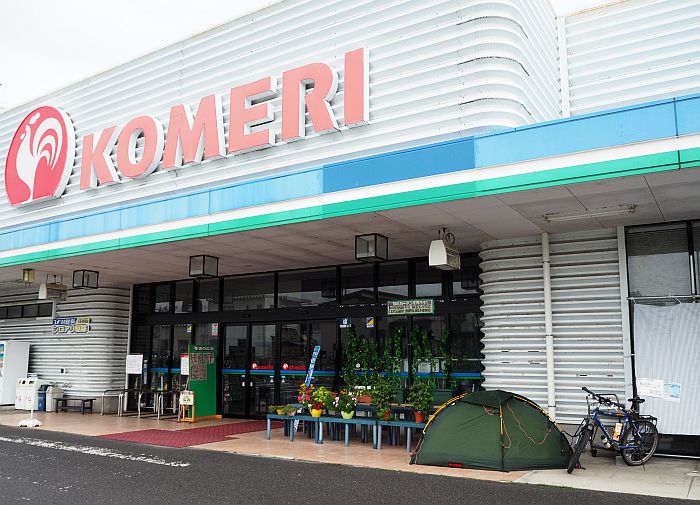
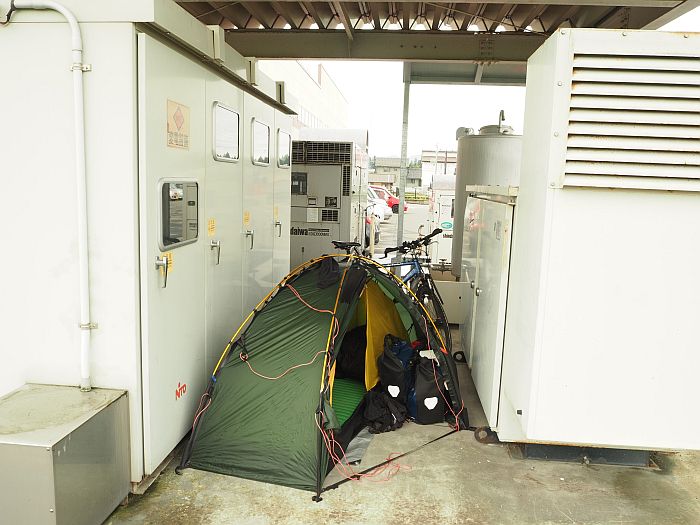
Coincidentally, I went past a volcanic area, clearly a solfatara. Nothing unusual on a volcanic island,
but what was really funny here is that it was a health center with lots of Japanese lying in the
vicinity of the sulfur vapors.
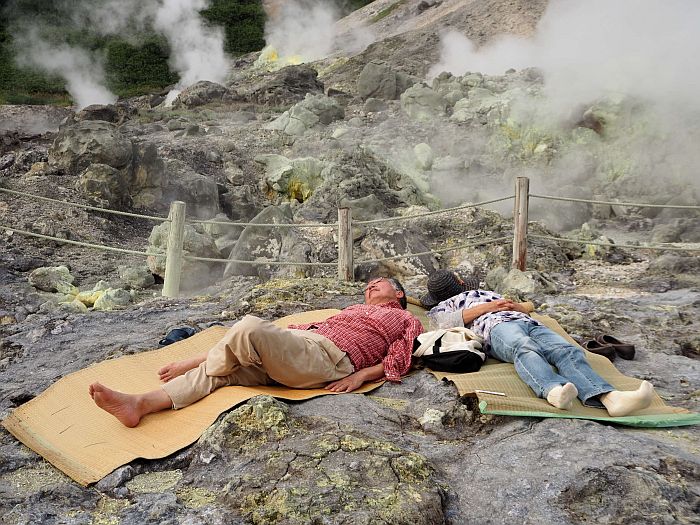
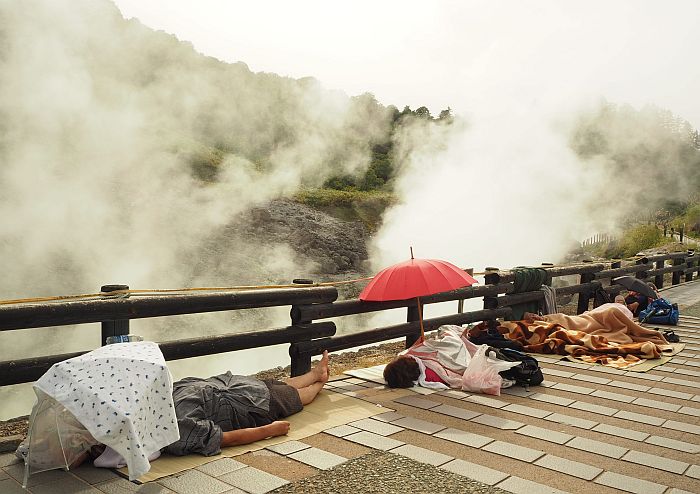
For hours they slept on slabs – some of them specially decorated. There were at least
a hundred people there. With mats and cushions, umbrellas and blankets, they made pilgrimages
toward the clouds of steam. I found that everything looked very comical.
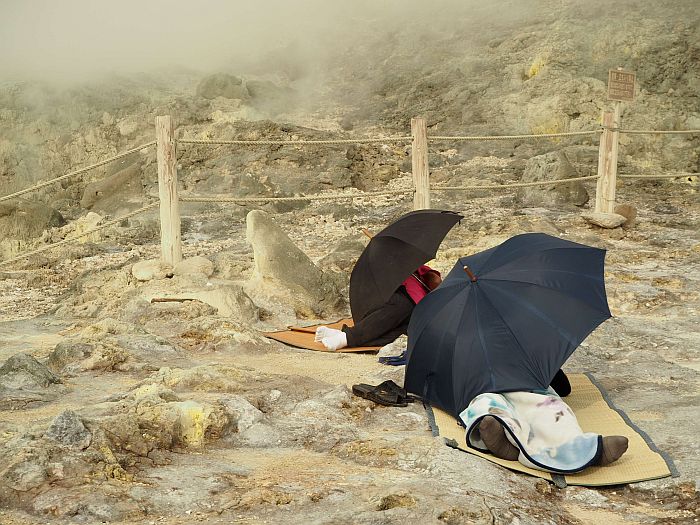
I sat in a 7-Eleven when a family approached me and invited me to their home. Super! What a great opportunity to see one of their homes from the inside. An American was married to a Japanese woman and so they were able to speak some English and I had a great evening. I was catered to with a kind of delicious pancake – Okonomiyaki – and afterwards, we all went together to the onsen in the village.
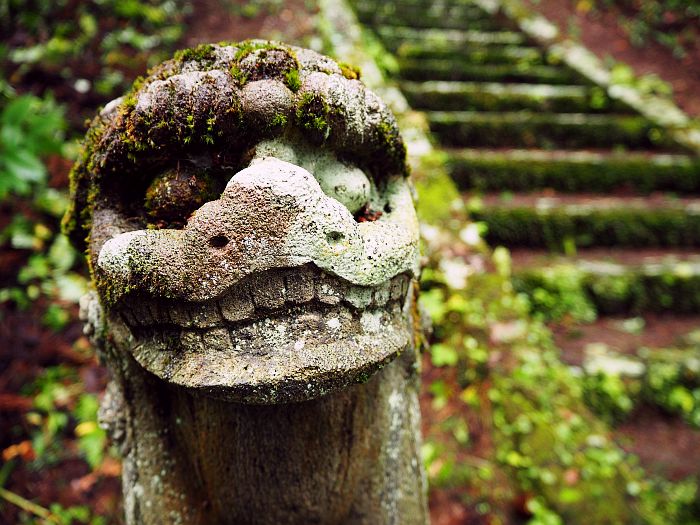
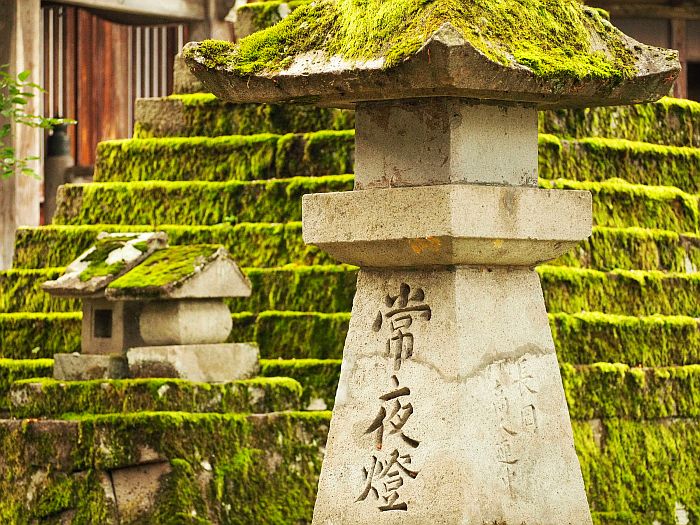
The kids liked me. We played cards and they showed me their toys. Again, I have to say that the two were extremely well behaved. They helped to clear the table, poured water into my glass and served me rice. Not complaining about anything, they behaved somehow very grown up. When their mother called them once, they were immediately on the spot and did what they were told.
For breakfast there was rice and miso soup and leftovers from the evening before. Along with that we also ate natto, the national specialty – fermented soybeans, which are sticky and really totally yucky.
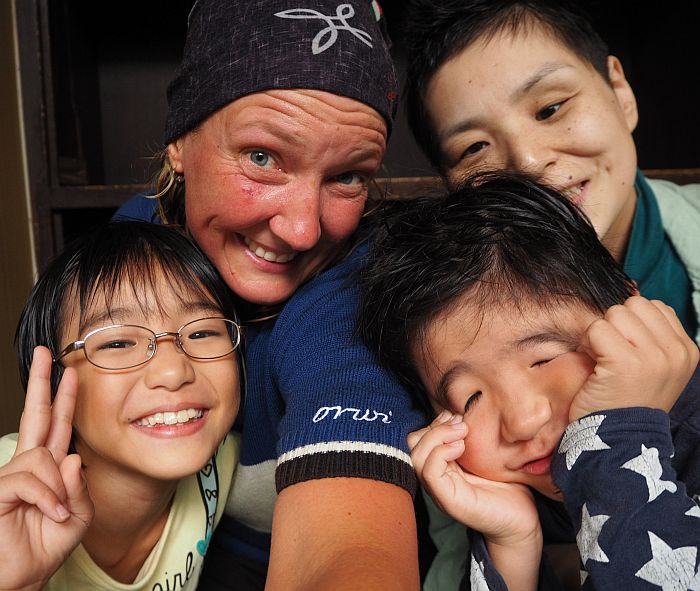
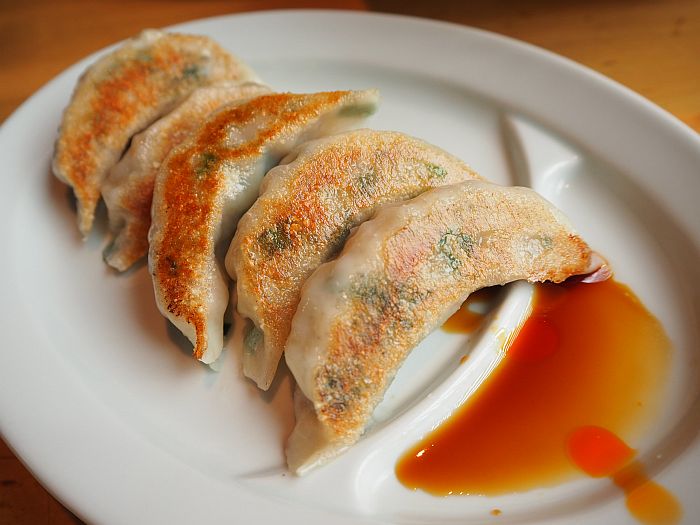
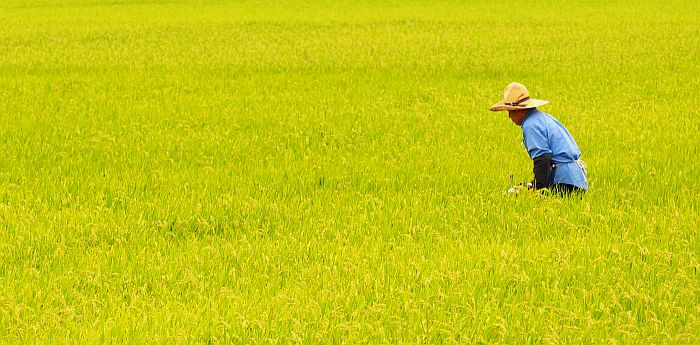
We visited a befriended family. A noble house. As always, the shoes had to be removed in the anteroom, and we slipped into the slippers. To me it would have been embarrassing to leave my stinking sweaty shoes standing in the anteroom to slip into brand new slippers with my wet, sweaty socks. So I changed my socks and left the rest standing outside in front of the doorway, which earned me a lot of praise for my good behavior, about which I chuckled inwardly. My mother would have broken out laughing. Since I’m usually the totally chaotic person.
I was invited to the table with a fine green tea.
A mother and daughter were visiting and a conversation ensued with them. I was told that the daughter is totally overwhelmed in her everyday life and has become ill because of working so hard. She began to cry and I felt completely out of place, so I told the others I would wait outside. But they wanted me to understand that it was absolutely OK, that everyone has problems and so I could stay and share in the conversation.
But I didn’t really understand that. On the one hand, the Japanese take others into consideration and show them much respect, attempting not to hurt them or cause them any inconvenience, and then, on the other hand, they carried out such an intimate conversation in the open with everyone present.
I would have liked to have stayed longer with the family, but I didn’t want to ask if I was still allowed to stay another day. I would have had so many questions. Even the American said he was so glad to be able to converse so well again. We both went through world politics, which I always find very exciting, especially if you have the opportunity to discuss it with people from other nations.
Somehow I felt sorry for him because he could hardly speak Japanese and is therefore still very limited. Just like me.
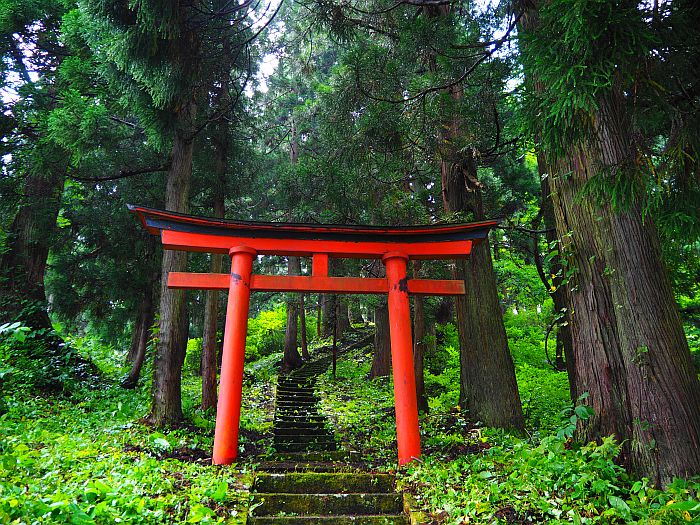
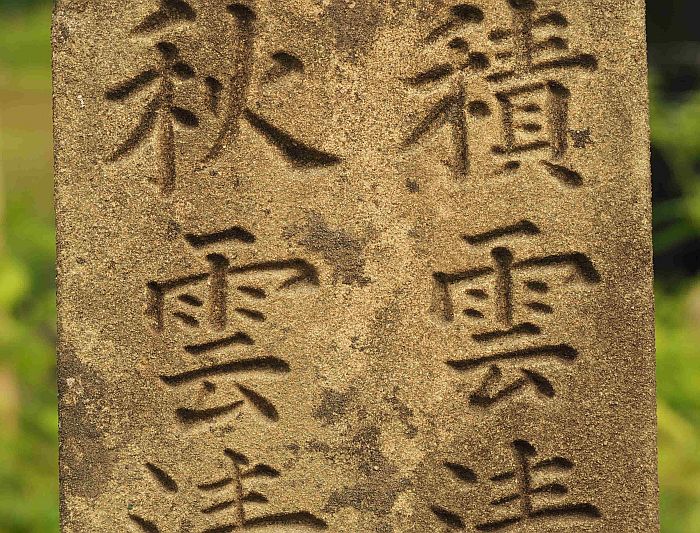
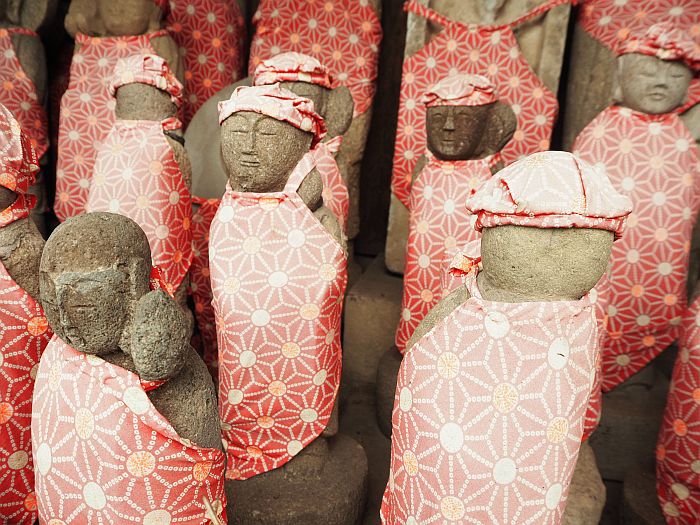
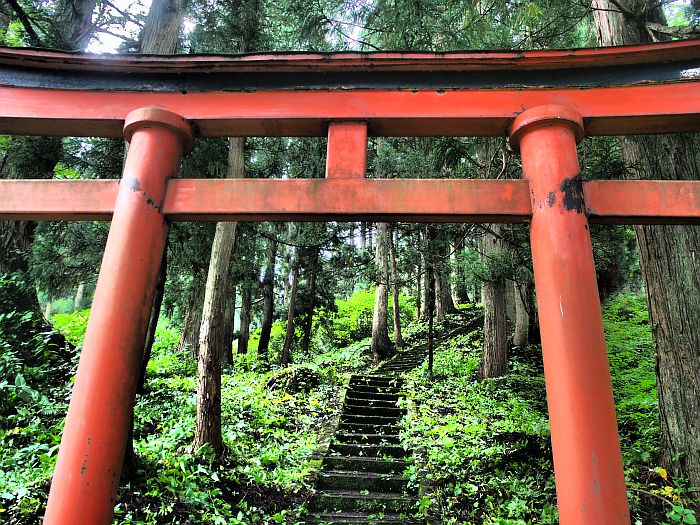
Shrines were now becoming more common, something I very rarely saw in Hokkaido. The houses now had curved gables and looked clearly more Asian, as they do in Hokkaido.
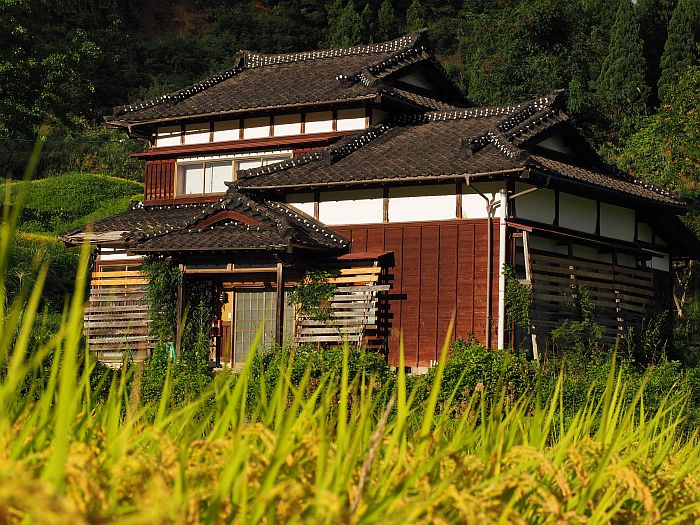
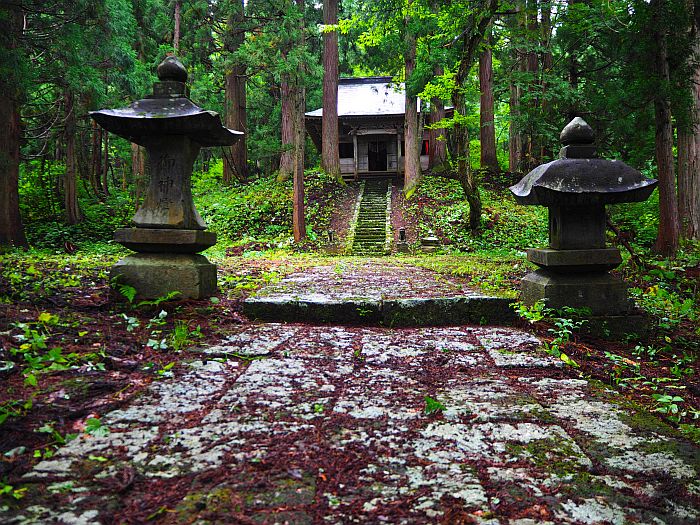
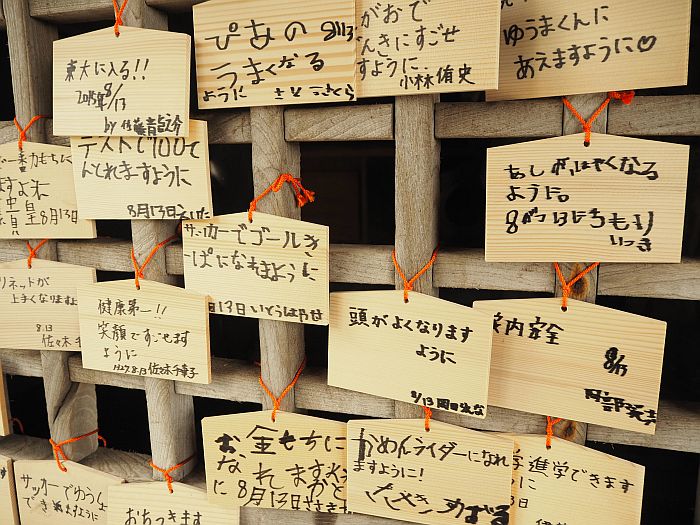
Another typhoon went through the country and it was so brutally windy that I didn’t really
know where I should camp. Of course, it was already dark again, because I always “wisely” look for tent sites in the dark, but unfortunately, I simply couldn’t find any sheltered spots.
I could no longer even think about cycling; the wind literally pushed me off the road; it was brutal. In my desperation I sought protection at the train station. And just as I wanted to set up my tent in the hall, a man coming home from work talked with me. Eventually, he invited me to his home and I was allowed to stay the night with him and his family in his daughter’s cozy bed.
In Japan, the oldest son remains in his parent’s home. The old mother baked tempuras for me. I was allowed to bathe but I fell shortly afterwards completely exhausted into bed.
The soft mattress was heavenly and I would have loved to have packed it onto my bike when I drove away the next morning in the rain.
The house was a bit of a mess and they apologized several times to me for it. I didn’t care, but I think it must have been very embarrassing for them; I was glad all the more that they had invited me anyway.
The elderly mother bowed dozens of times very deeply to me and I didn’t know how to react. It was super uncomfortable for me that such an old woman would bow so intensely before me. Yes, this was a case where two worlds collided with each other.
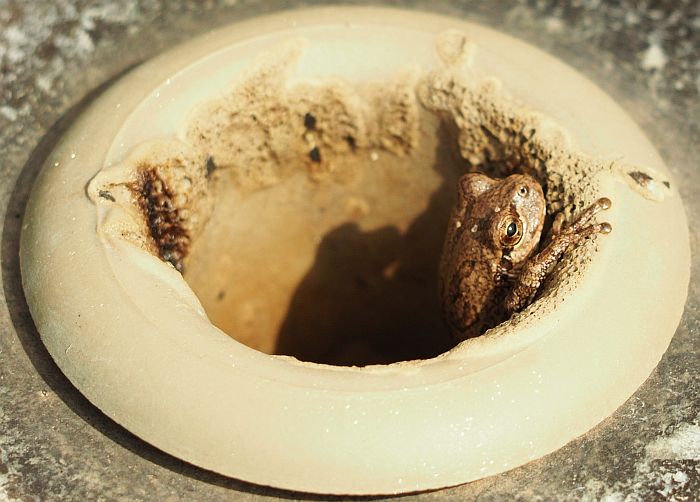
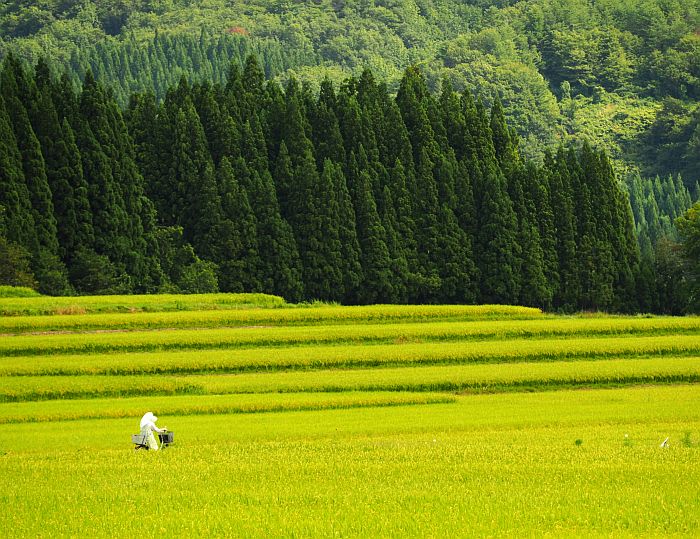
“Ah sooo…” (I see) in Japanese means the same as “Ach so” in German, except it is drawn out longer. I always have to grin because the people use this expression very often and it really sounds the same as in German and has exactly the same meaning.

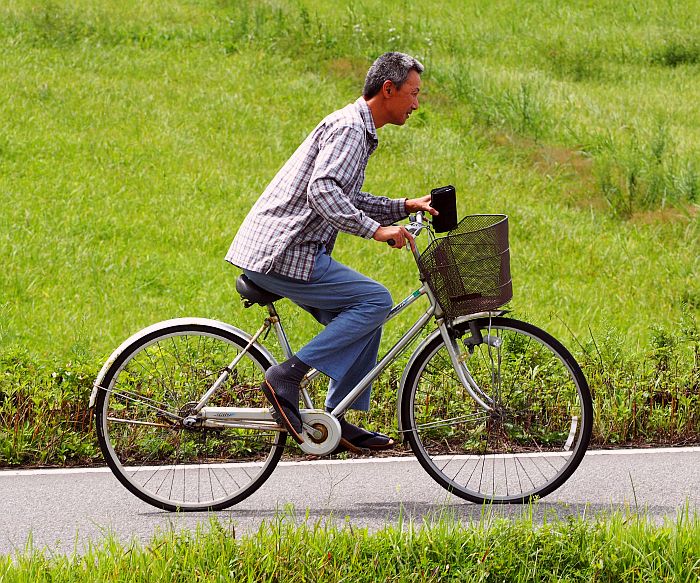
There was a gradual transition of forest into rice fields, wondrously beautiful terraces and
many old people. Lonely roads appeared along with hills and mountains.
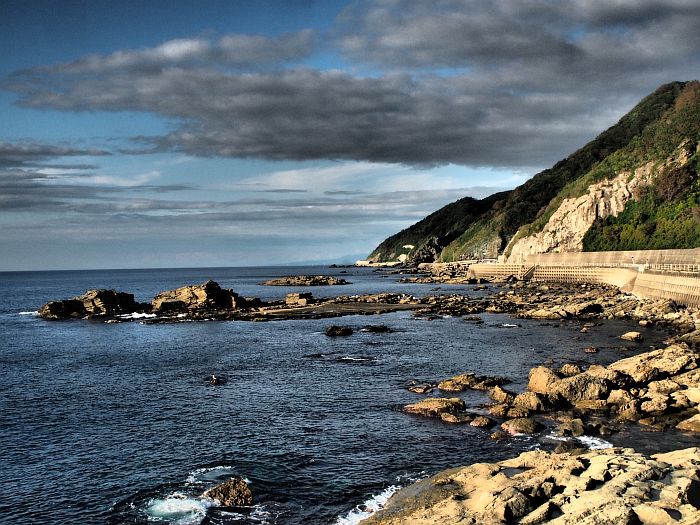
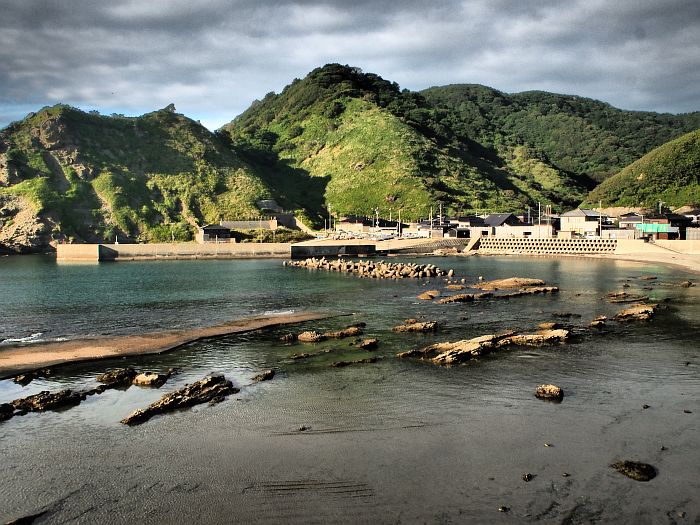
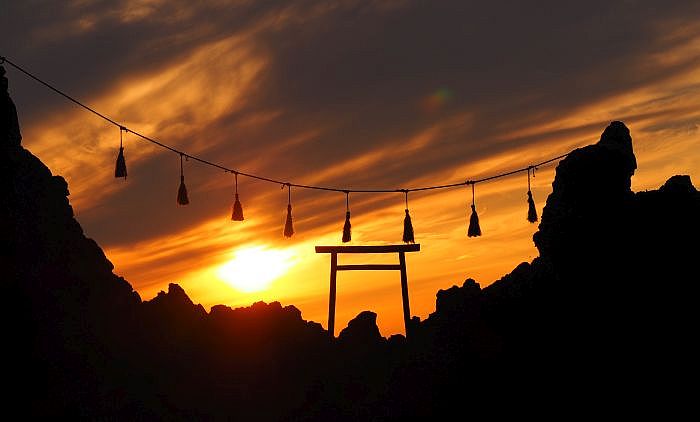
I cycled to the coast to give my legs a break, but I quickly regretted the decision because the traffic was simply horrendous. I took refuge again in my lonely, beloved mountain world, even though by doing so I had to make a detour. But that really didn’t matter; I had the time.
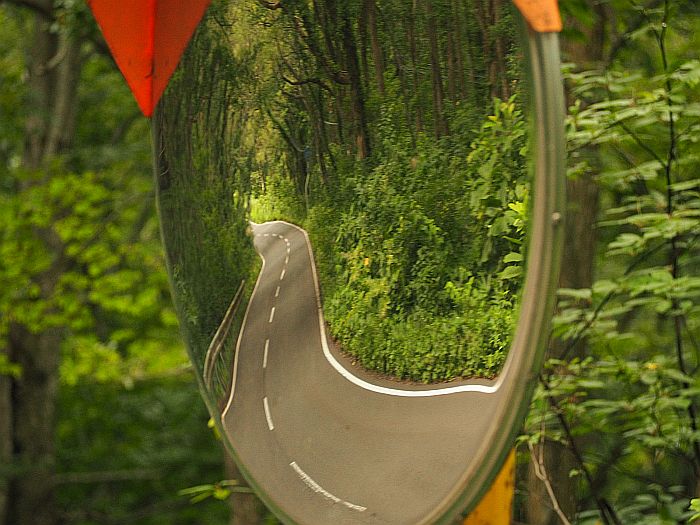
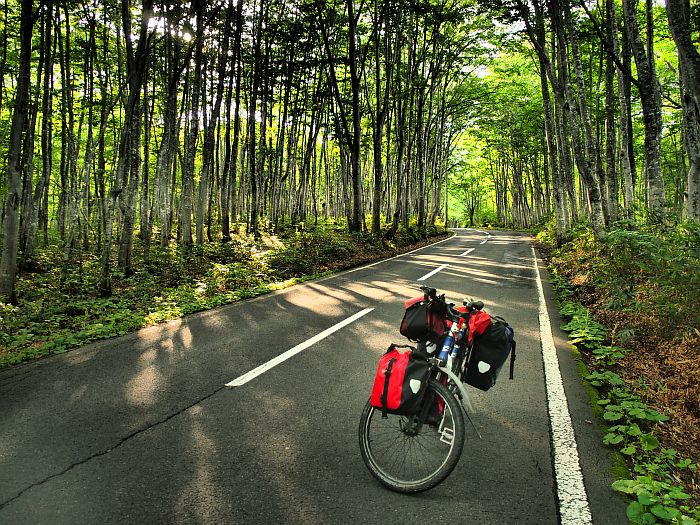
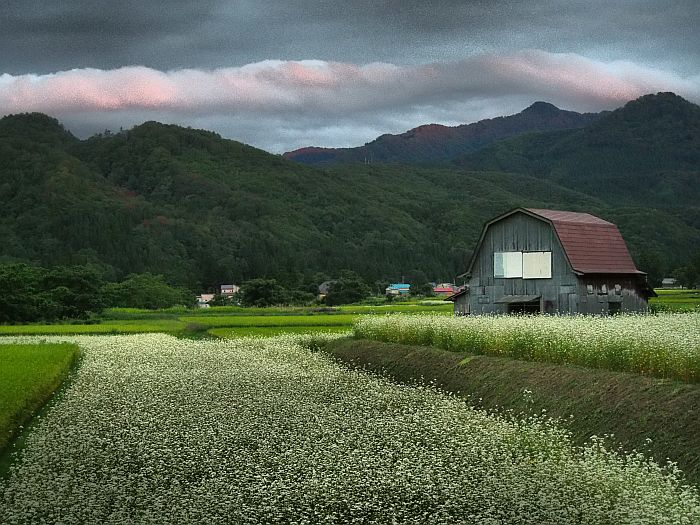
In a supermarket I met two Americans who had been teaching English there for two years.
They invited me immediately to their home and I was so glad to be able to have a good
conversation again. They explained to me how difficult it was for them to teach the children
English, because the system is so strange. They are only helpers in the classroom and not
really the teachers.
Also, the children are taught English in a very complicated, old-fashioned manner. In the
Japanese language, a consonant is always followed by a vowel and therefore, in English
classes they would simply insert just any vowel into every word to make it easier for
the kids.
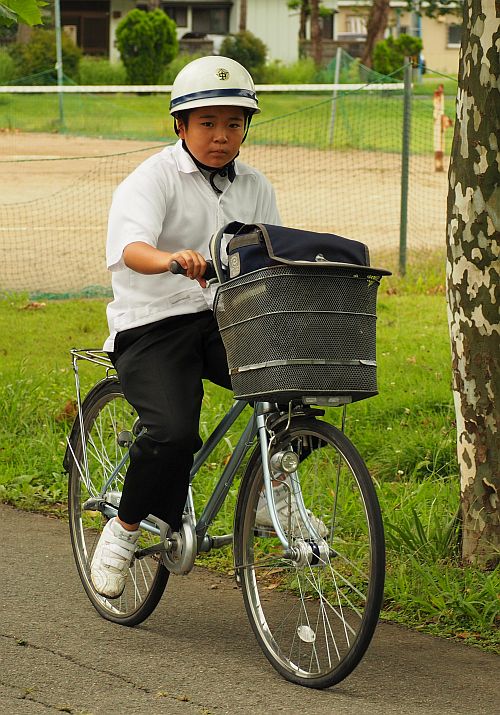
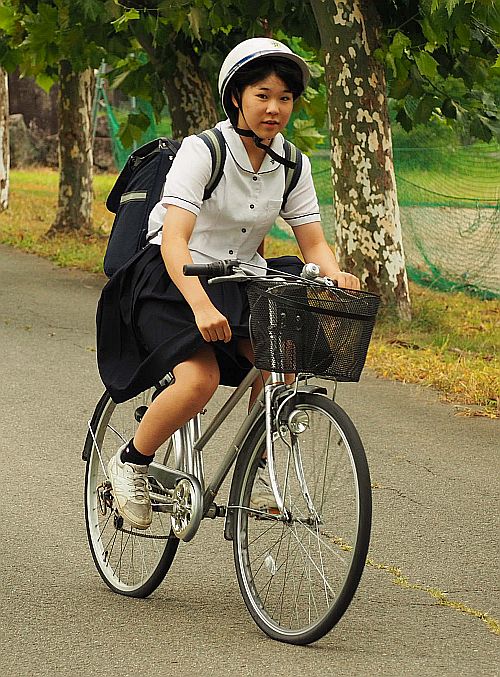
McDonalds, for example, would be Makudonarudo. Only in the high school do they begin to teach them the words correctly. The Japanese government is investing a lot of money for English lessons. Supposedly, there is a native English speaker in many schools, for whom an apartment is made available and a good salary is paid. Unfortunately, very little comes of it.
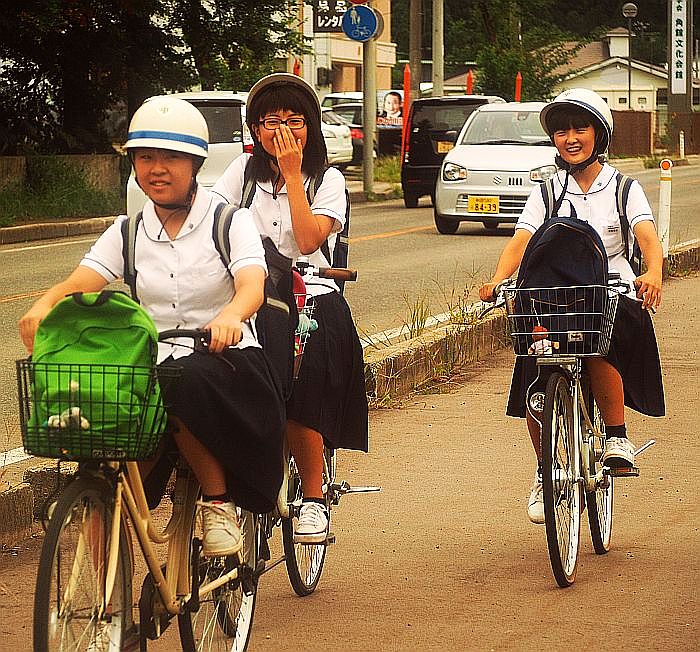
I had selected a remote mountain slope on the map and fought again with the altitude and humidity. For once, it was not raining. After 1,200 meters of climbing up, I reached the summit and, unfortunately, there was a sign and a barrier that informed me that the road is closed. But I certainly didn’t want to travel that road in vain, so I ignored the barricade and was curious what would happen next.
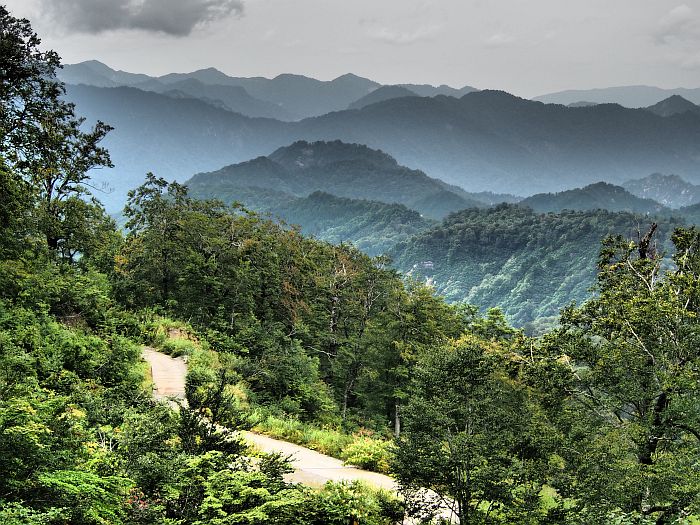
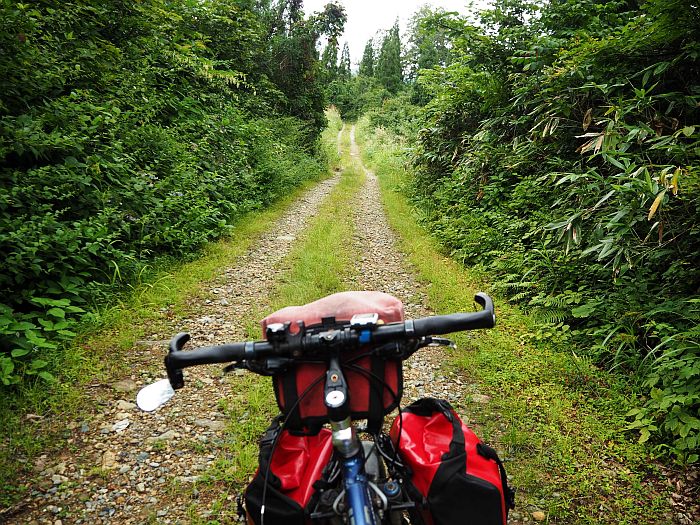
I wasn’t even certain anymore I was really travelling on the right road because I hadn’t seen a car for hours and the road became worse and worse. Gravel, tall grass, fallen trees – one thing was clear in any case – the road hadn’t been traveled for a very long time.
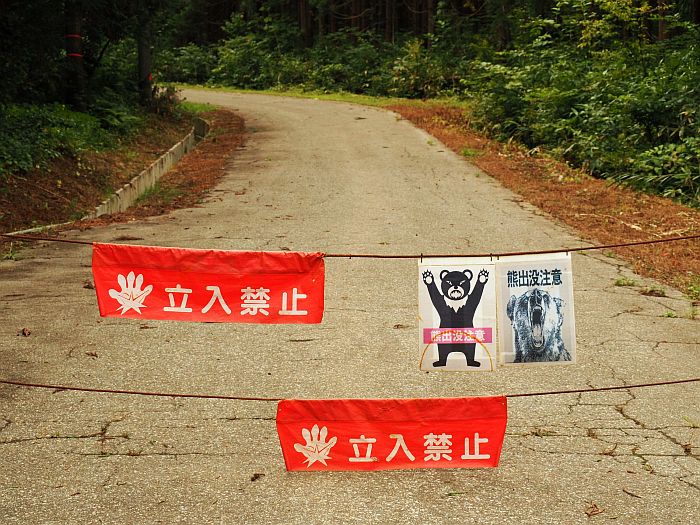
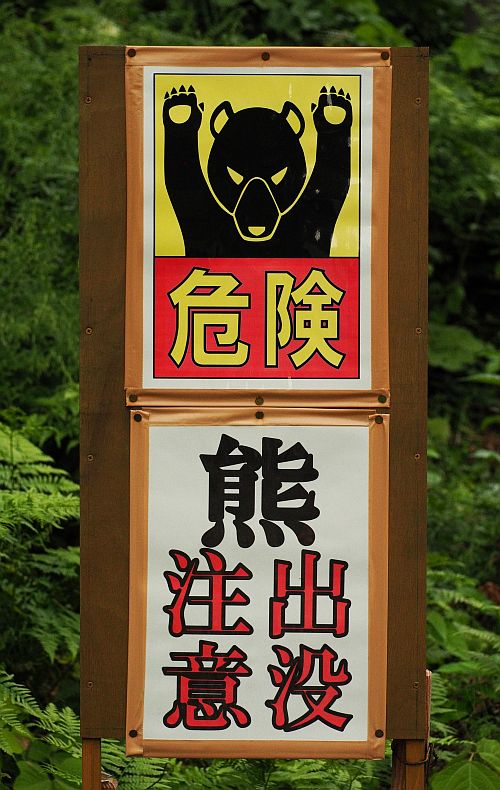
which are normally supposed to be harmless. Nonetheless, I didn’t want to accidentally
run into one at the next corner because the grass had grown really quite high in places.
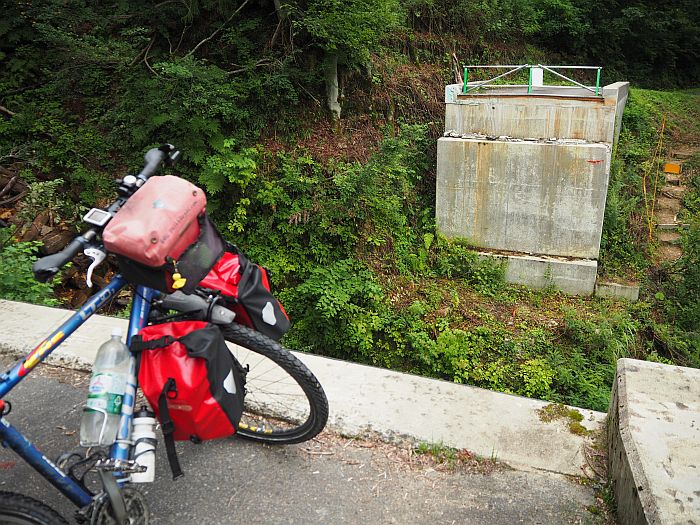
After I had rolled downhill about 1000 meters in altitude, I learned why the road was blocked. I stood before an abyss. The bridge had been swept away. Really great! But, on the side there was a very steep path that had been prepared with ropes, so I took the panniers off my bike and began to carry them to the other side.
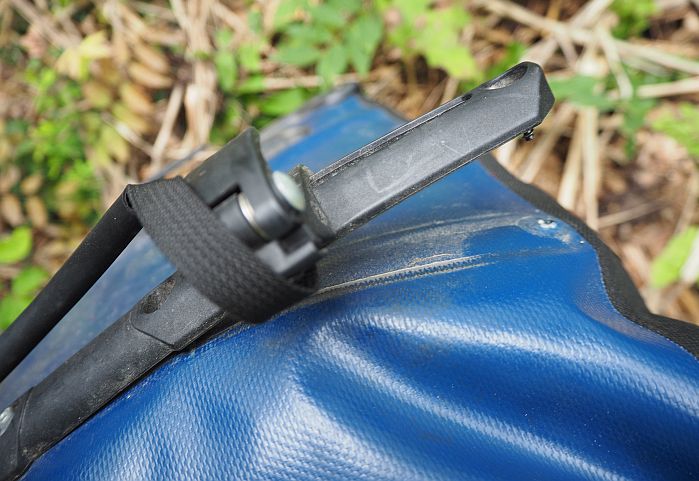
It was here that I realized once again that for the third time the screws for the panniers were lost. I would have to come up with something.
The bike was the biggest problem, and I really tried hard not fly down the embankment with my bike. It was brutally steep. In the end, everything made it to the other side and it was only 5 km further to the main road. I came out exactly at the point where I wanted to arrive. Somehow, I was surprised that the current map had not shown that the old road was blocked.
Anyway, I experienced a little adventure again and that’s always nice to have.
However, I had been completely exhausted. Drained. I desperately needed a break, so I spent a few hours in a small onsen and tried to get my legs back into shape.
That provided me with a few nice encounters with some old women and I pitched my tent in the middle of the night under the roof of a public building.
The people looked after me and, instead of chasing me away they tried to find an even better place for me. Although it was raining without end, they helped me.
I really like the people a lot.
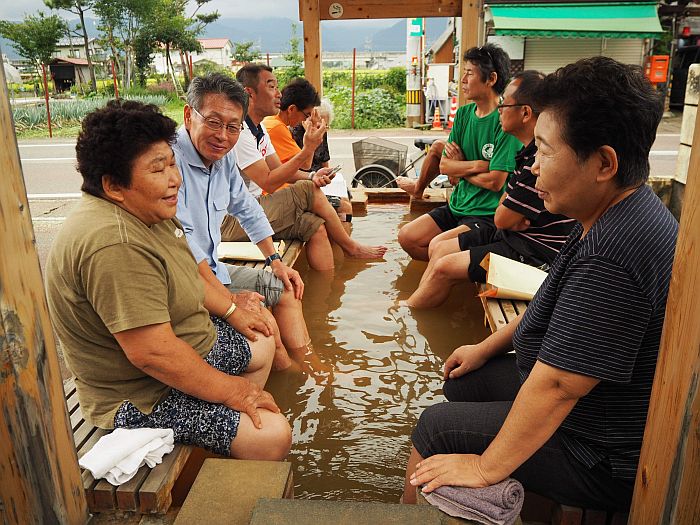
The rain didn’t stop. It began to annoy me. I always squeezed myself anywhere into any
public building or store that I could find, trying to make the most out of each day. For 3 days
I slept hidden under the roof of a church, a super quiet place where I even left all my things
and went shopping. Once again, I had no fear that someone might steal anything from me.

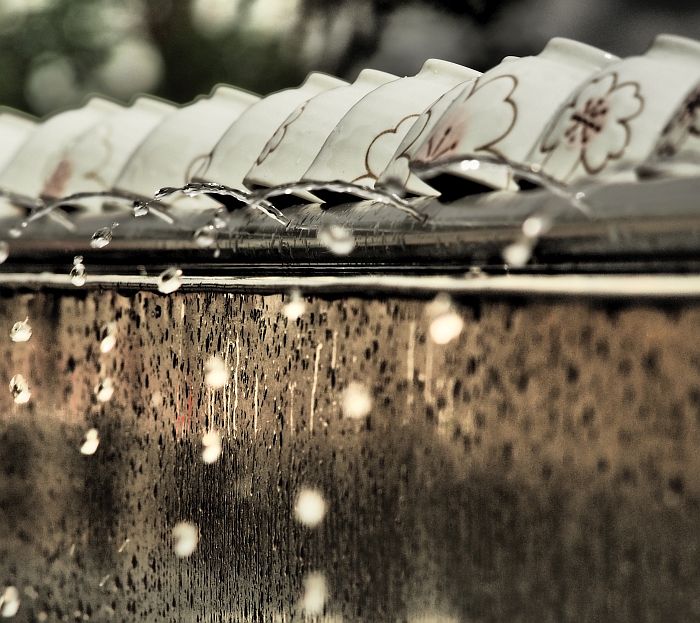
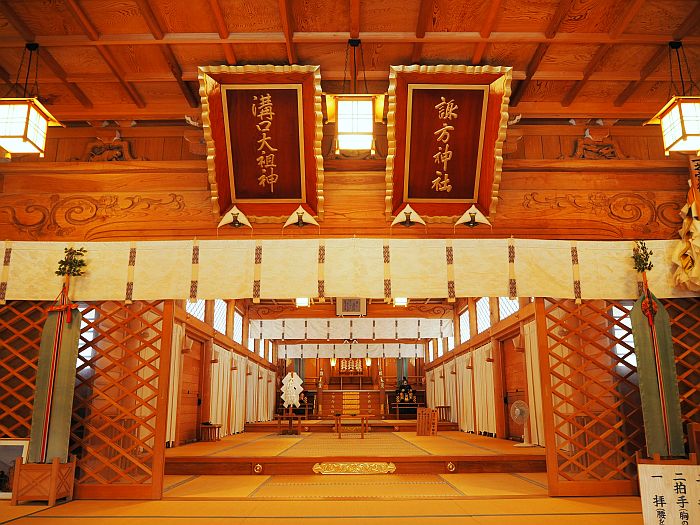
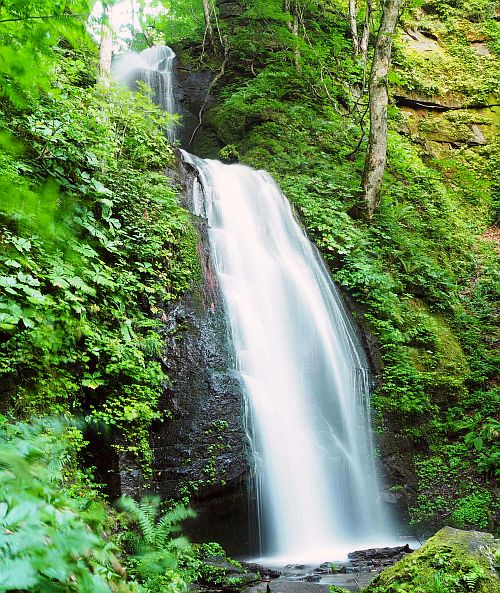
The people changed. From the super loving, curious, extremely friendly Japanese,
whom I had come across before, the people became more city-like. That doesn’t mean
that they suddenly behaved strangely, but it means that some of them no longer radiated
the togetherness anymore. Suddenly, there was a kind of seriousness in the air.
It became hectic and there were less friendly gestures.
Every now and then, I met selfish motorists and clerks in the shops, who were still
very friendly, but their smiles were constrained. There was somehow no longer the
heart-felt warmth as there was in the other areas previously. Somehow a bit of the
fascination was gone.
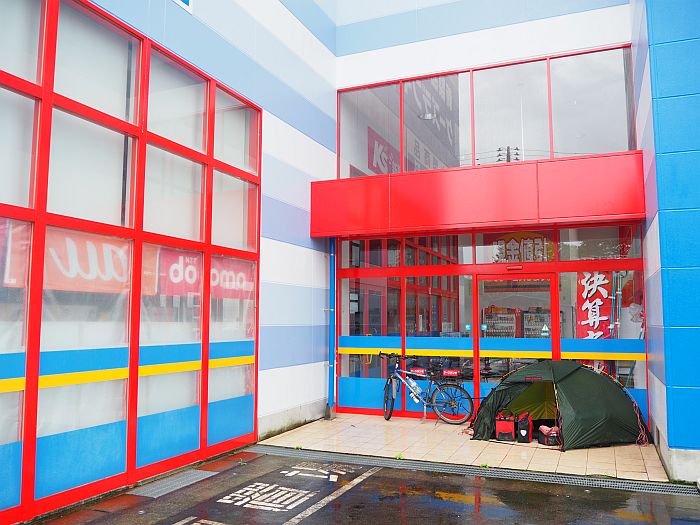
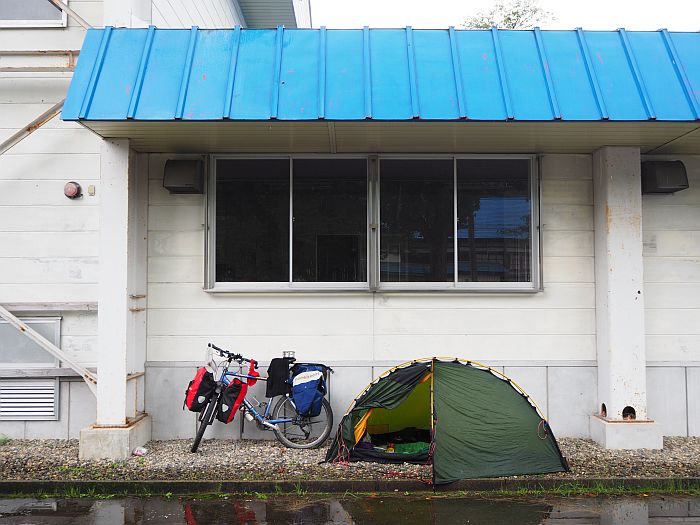
The traffic increased continuously. Actually, I was on my way into the Japanese Alps, but since it just rained all the time, I put many of my lonely mountain trail plans aside and rode on side roads, but despite everything, they were clearly more frequented than the lonely trails in Hokkaido. Besides that, I would ride 5 km, wait until the next downpour was over, and then drive another 2 km then looked for shelter again.
Actually, I wasn’t making any headway at all. It gradually became miserable.
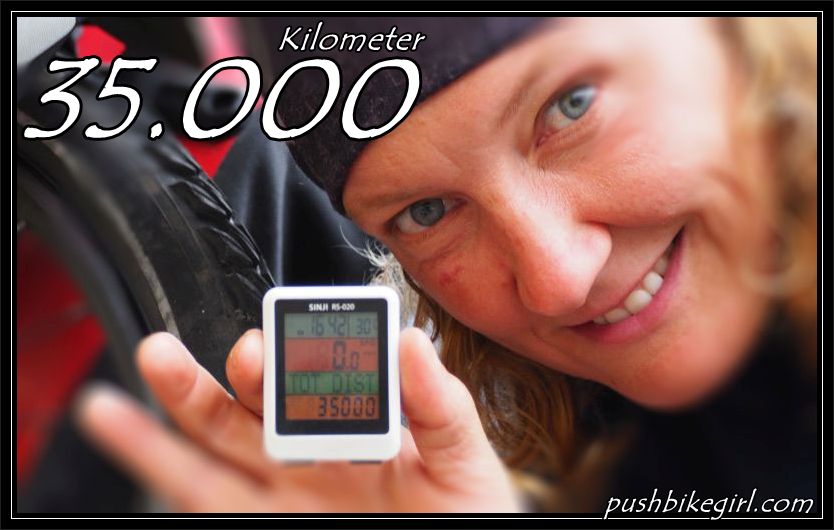
But, finally, I reached the next cheerful milestone at 35,000 kilometers.
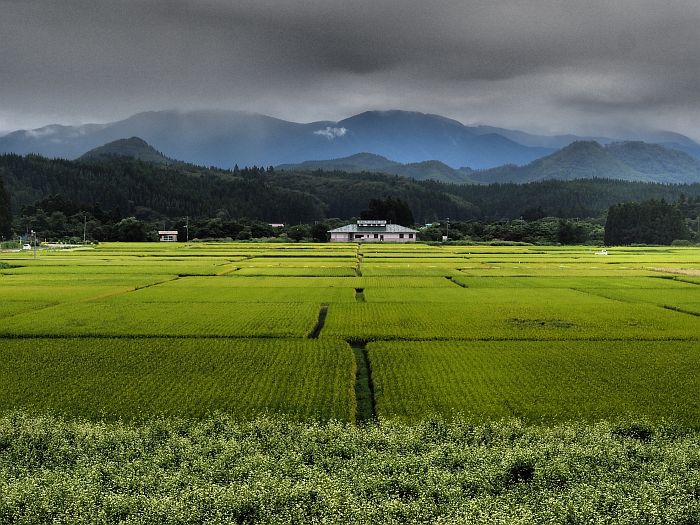
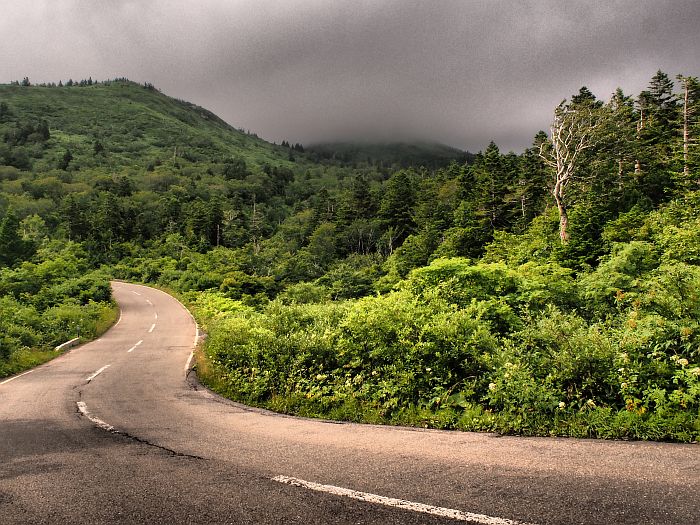
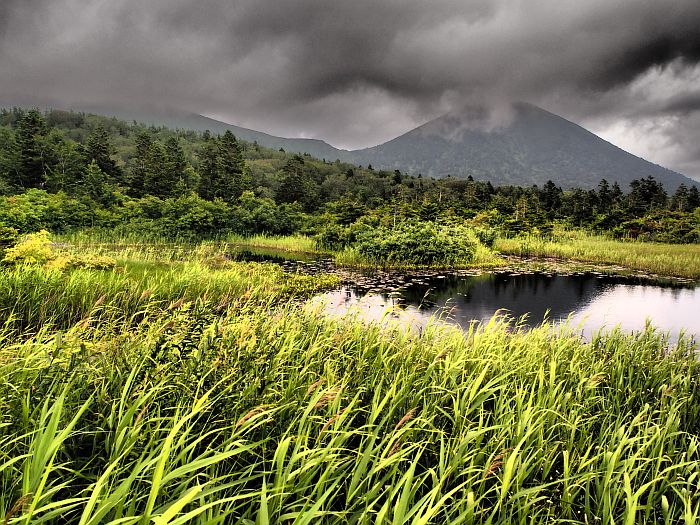
For weeks now, I have occupied myself with the question “which country will I go to after I leave Japan?”
One thing was clear; Japan was the last country I would visit on the Asian continent, because my main priority now was to travel in a country where I could converse with the people. I’ve been to 28 countries unable to discuss anything with the people.
I could never read anything; I couldn’t understand anything; and I couldn’t say anything at all. I have felt like an illiterate deaf-mute for the last 28 months. I simply have a longing for a connection to the people. I’ve spent enough time now being lonely.
So, now it has to be an English speaking country and there aren’t many available. I also need to pay attention to the seasons. I haven’t been able to decide yet, but the time on my visa will soon run out, so it is time to make a decision.
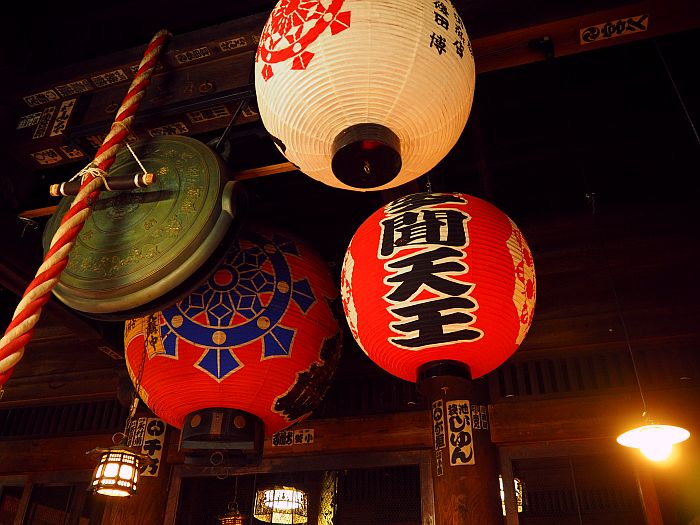

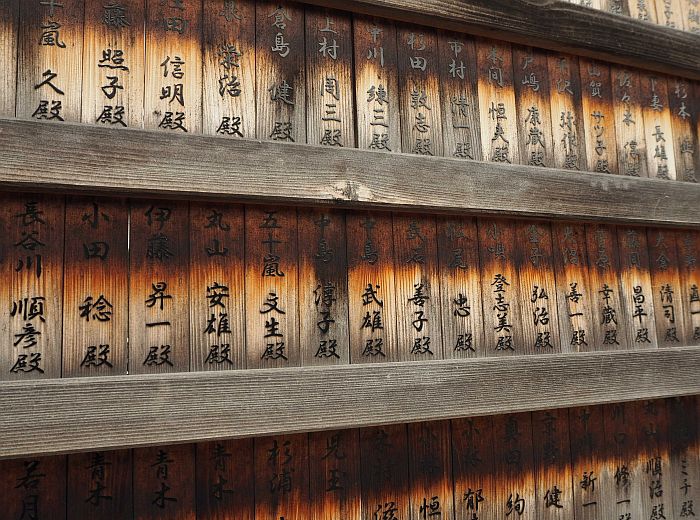
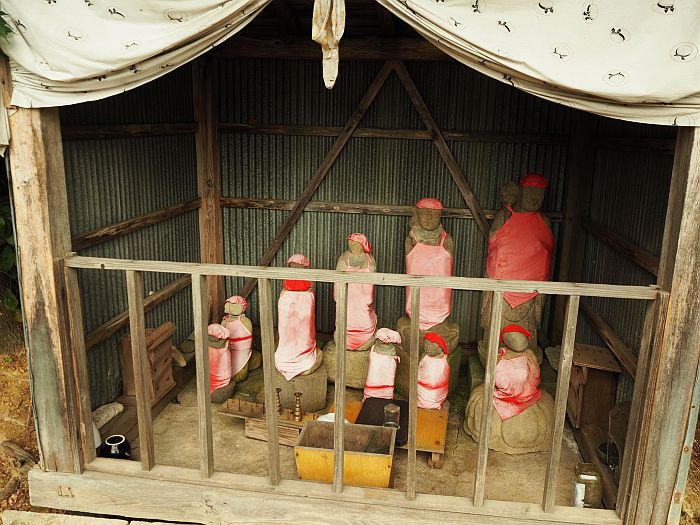
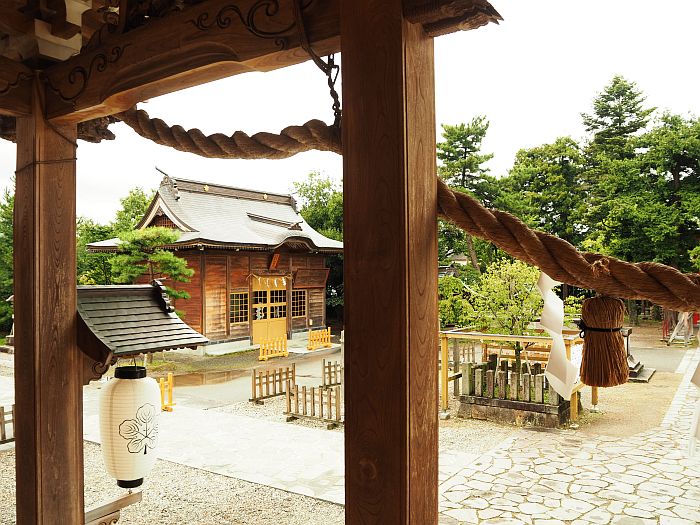
We’ll see where and how it will continue.
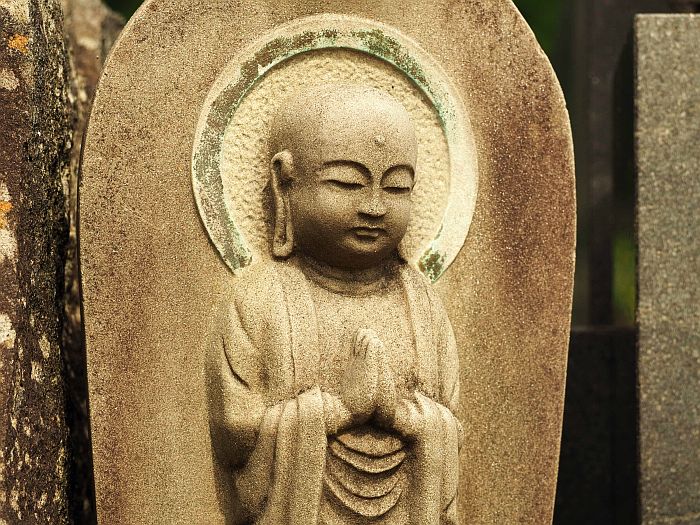
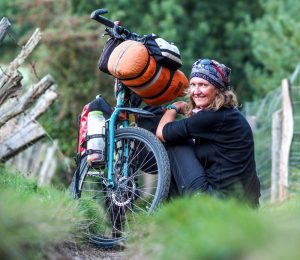





I read the whole piece. Thank you.